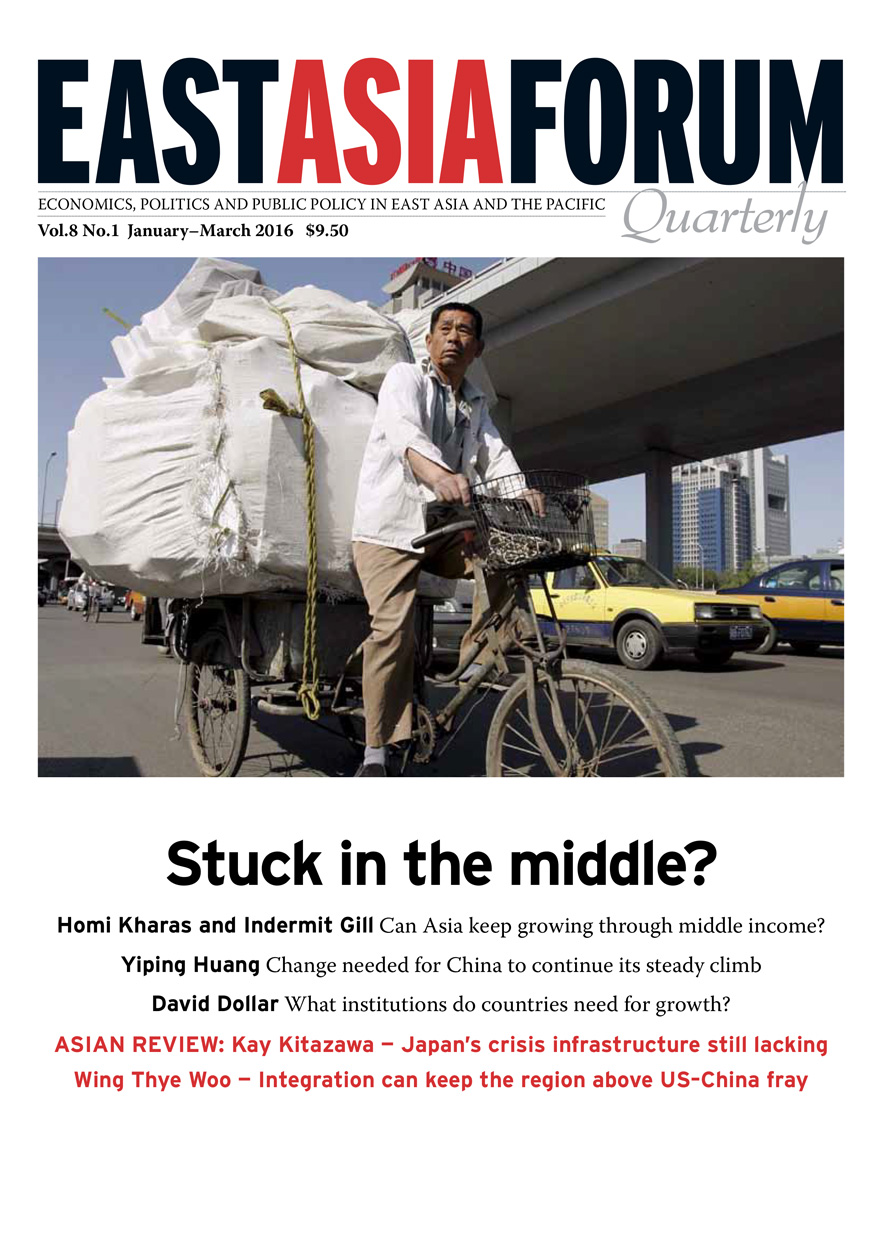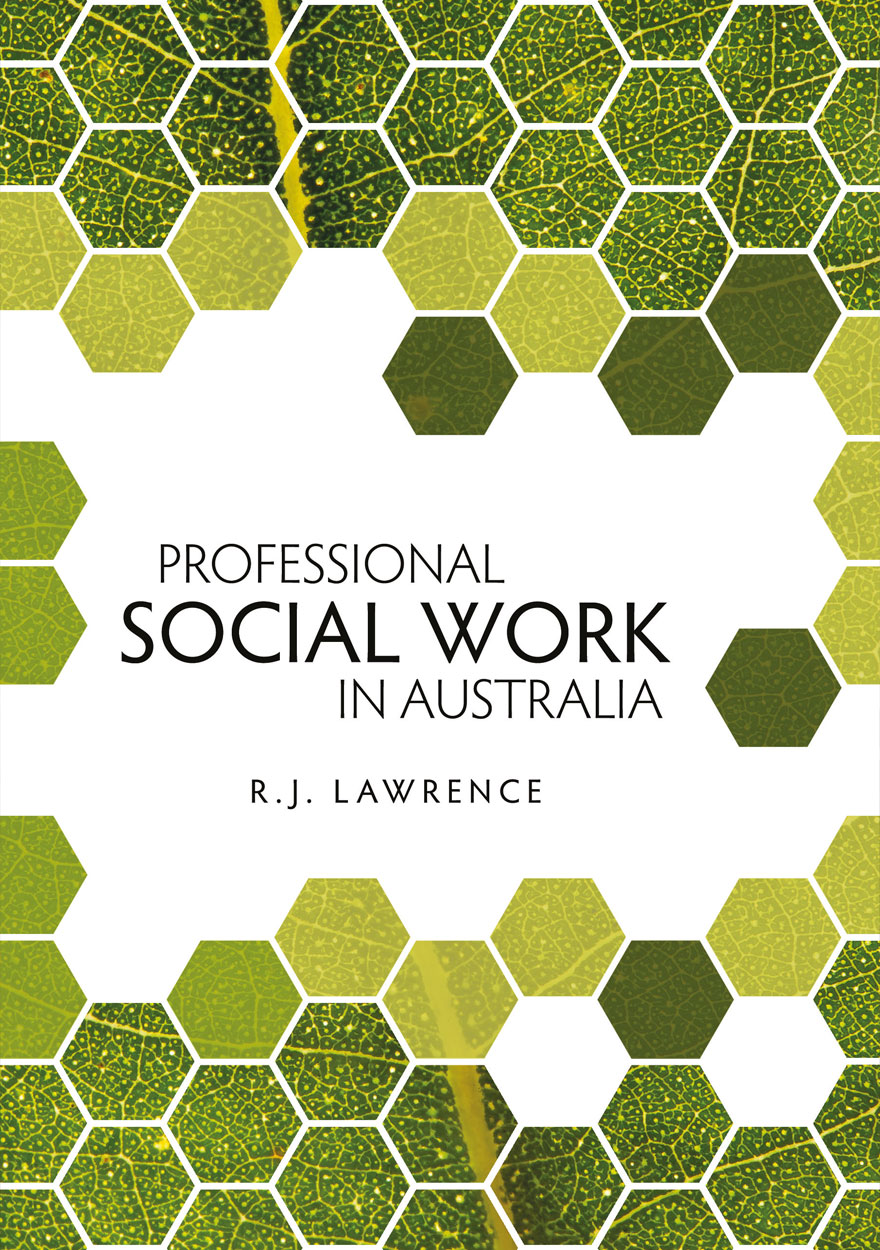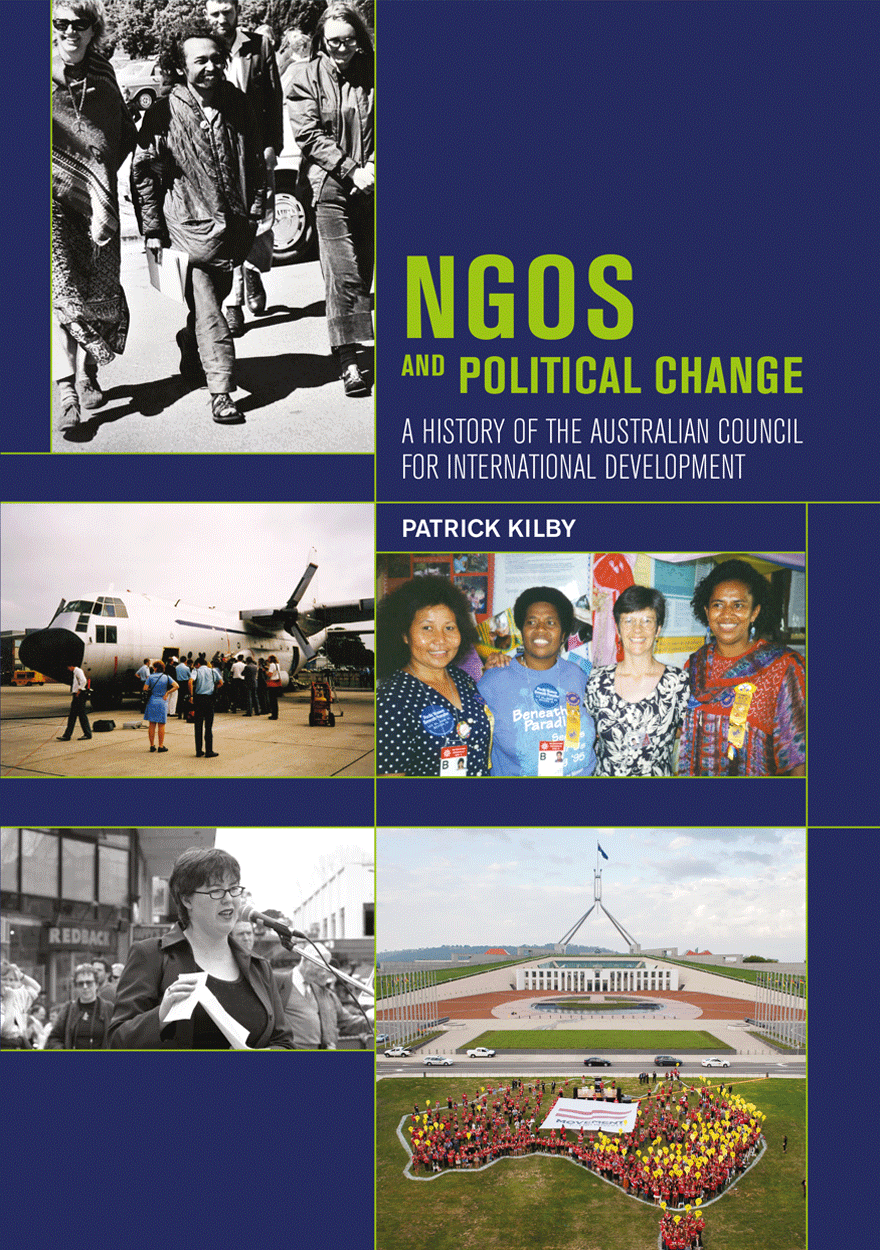Search titles
Displaying results 11 to 20 of 36.

A National Asset »
50 Years of the Strategic and Defence Studies Centre
Edited by: Desmond Ball, Andrew Carr
Publication date: August 2016
This volume commemorates the 50th anniversary of the Strategic and Defence Studies Centre (SDSC). The Centre is Australia’s largest body of scholars dedicated to the analysis of the use of armed force in its political context and one of the earliest generation of post-World War II research institutions on strategic affairs. The book features chapters replete with stories of university politics, internal SDSC activities, cooperation among people with different social and political values, and conflicts between others, as well as the Centre’s public achievements. It also details the evolution of strategic studies in Australia and the contribution of academia and defence intellectuals to national defence policy.

Modern Japanese Online »
The first course to mastering modern Japanese
Authored by: Naomi Ogi, Duck-Young Lee
Publication date: July 2016
Modern Japanese Online is designed to provide beginning learners of the Japanese language with a solid base of the major grammar and expressions of Japanese in a flexible electronic mode. With detailed explanations and practical exercises, successful learners will gain quality knowledge of the system of the Japanese language, as well as exceptional skills to deal with a variety of verbal expressions necessary for daily conversations.
The learning objectives have been designed and organised on a step-by-step basis. With detailed explanations and rich exercises, Modern Japanese Online aims at ‘easy to use and easy to learn’.
Modern Japanese Online is based on the Grammar and Expressions sections in 日本語がいっぱい 'Nihongo ga Ippai' (published in 2010, by Hituzi Shobo, Tokyo), which is aimed at developing communication skills in terms of Grammar, Expressions, Natural Conversation Notes, Creative Dialogues, and Cultural Notes. Since Modern Japanese Online mainly focuses on the Grammar and Expressions, it is recommended that learners use this eText in conjunction with日本語がいっぱい for comprehensive study of Japanese.
The combined use of Modern Japanese Online and日本語がいっぱい 'Nihongo ga Ippai' aims to cover most grammar items and expressions up to the Level N4 of the Japanese Language Proficiency Test.
Note: Due to the large file size, this ebook might take a little while to open in your ebook reader.
This textbook is used as course material in:
Japanese 1: Spoken JPNS1012 and JPNS6112
Japanese 1: Written JPNS1014 and JPNS6114
Japanese 2: Spoken JPNS2003 and JPNS6113
Japanese 2: Written JPNS2005 and JPNS6115
Download for free
Not available for purchase

East Asia Forum Quarterly: Volume 8, Number 1, 2016 »
Publication date: March 2016
East Asia Forum Quarterly grew out of East Asia Forum (EAF) online, which has developed a reputation for providing a platform for the best in Asian analysis, research and policy comment on the Asia Pacific region in world affairs. EAFQ aims to provide a further window onto research in the leading research institutes in Asia and to provide expert comment on current developments within the region. The East Asia Forum Quarterly, like East Asia Forum online, is an initiative of the East Asia Forum (EAF) and its host organisation, the East Asian Bureau of Economic Research (EABER) in the Crawford School of Economics and Government in the College of Asia & the Pacific at The Australian National University.
Download for free
Not available for purchase

Professional Social Work in Australia »
Authored by: R.J. Lawrence
Publication date: February 2016
This is an unchanged republication of the first historical account of the social work profession in Australia. It traces the development of social work education and professional social work in the larger, more industrialised societies overseas before the same developments began in Australia in the late 1920s, and it notes the part played by overseas influence in the subsequent 30-odd years. The book concentrates on the development of training bodies and their courses, the spread of qualified social workers into various fields of employment in Australia’s expanding health and welfare services, and the growth of professional associations and their programmes. The author assesses the occupational group in terms of accepted attitudes towards the established professions. He concludes with a discussion of major contemporary issues facing the Australian social work profession.

Through a Glass Darkly »
The Social Sciences Look at the Neoliberal University
Edited by: Margaret Thornton
Publication date: November 2015
This collection of essays arose from a workshop held in Canberra in 2013 under the auspices of the Academy of Social Sciences in Australia to consider the impact of the encroachment of the market on public universities. While the UK tripled fees in 2013 and determined that the teaching of the social sciences and the humanities would no longer be publicly funded, it was feared that Australia would go further and deregulate fees altogether.
In the best tradition of the social sciences, the contributors have assumed the role of critic and conscience of society to present penetrating analyses of the ramifications of the corporatisation of the university as neoliberalism continues to occupy the ascendant position in the political firmament. The dramatis personae in these analyses are students, academics, managers and political mandarins with the gendered character of corporatisation an important sub-theme.

The Social Sciences in the Asian Century »
Publication date: September 2015
In this collection of essays, we reflect on what it means to practise the social sciences in the twenty-first century. The book brings together leading social scientists from the Asia-Pacific region. We argue for the benefit of dialogue between the diverse theories and methods of social sciences in the region, the role of the social sciences in addressing real-world problems, the need to transcend national boundaries in addressing regional problems, and the challenges for an increasingly globalised higher education sector in the twenty-first century. The chapters are a combination of theoretical reflections and locally focused case studies of processes that are embedded in global dynamics and the changing geopolitics of knowledge. In an increasingly connected world, these reflections will be of global relevance.

NGOs and Political Change »
A History of the Australian Council for International Development
Authored by: Patrick Kilby
Publication date: August 2015
The Australian Council for International Development is the peak body of Australian international development NGOs. This book explores ACFID’s history since its founding in 1965, drawing on current and contemporary literature as well as extensive archival material. The trends and challenges in international development are seen through the lens of an NGO peak body: from the heady optimism of the first Development Decade of the 1960s, through the growth in government support of NGOs in the 1980s, to the challenges of the 2010s. The major themes of ACFID are presented: human rights; gender justice; humanitarianism; NGO codes of conduct; and influencing government policy both broadly and as it relates to NGOs. Each of these themes is placed in a global context and in relation to what other NGO networks are doing internationally.

The Plant Detective's Manual »
A research-led approach for teaching plant science
Authored by: Gonzalo M. Estavillo, Ulrike Mathesius, Michael Djordjevic, Adrienne Nicotra
Publication date: November 2014
If global challenges in food production and the impact of ever-declining biodiversity are to be tackled, every country will need plant biologists who have a deep understanding of plant morphology, physiology and genetics, and how these interact to affect plant function in changing environments. These scientists will also need the capacity to use an effective and powerful set of technologies and research strategies. To prepare and inspire our students to become that next generation of researchers and to instill a meaningful involvement in research we created an integrated set of laboratory investigations that we felt truly reflected the mysteries of plant biology and puzzle-solving processes that we had encountered in our research experience. Rather than a set of unconnected experimental activities, we created a series of closely related experiments that focused on solving ‘mysteries’ in the life of the plant Arabidopsis thaliana (thale cress). The activities charge students with finding the ‘suspect’ gene responsible for the specific phenotypes of an unknown Arabidopsis mutant, which are encountered when they expose the plants to different environmental stresses. This, we hoped, would give keen but inexperienced student scientists a realistic taste of the joys (and frustrations!) of plant science research.
Although thrilled by numerous university and national awards for our innovative teaching, we have been most excited by the interest in our ideas and experimental approaches from other plant science educators in Australia and overseas, who are also seeking to improve their plant biology curriculum and attract more students to plant sciences. We are thus proud to present this manual as a gift to our colleagues worldwide. Here you will find a detailed collection of state-of-the-art procedures in plant biology, as well as background information on more commonly used techniques, and tips for class preparation. The concepts and methods we present can be adapted to meet the specific needs and expertise of the teaching staff, and provide inspiration for scaling up for larger audiences, or simplifying for more junior classes. Through this publication, we hope to support our teaching colleagues in making a significant impact on improving the learning experience of plant biology students worldwide, and hope that we will motivate and inspire a new generation of plant detectives.

Australia and Latin America »
Challenges and Opportunities in the New Millennium
Edited by: Barry Carr, John Minns
Publication date: August 2014
This is a good time to reflect on opportunities and challenges for Australia in Latin America. Impressive economic growth and opportunities for trade and investment have made Latin America a dynamic area for Australia and the Asia Pacific region. A growing Latin American population, Australia’s attractiveness to Latin American students, a fascination with the cultural vibrancy of the Americas and an awareness of Latin America’s increasingly independent stance in politics and economic diplomacy, have all contributed to raising the region’s profile. This collection of essays provides the first substantial introduction to Australia’s evolving engagement with Latin America, identifying current trends and opportunities, and making suggestions about how relationships in trade, investment, foreign aid, education, culture and the media could be strengthened.

The Joy of Sanskrit »
A first-year syllabus for tertiary students
Authored by: McComas Taylor, Grazia Scotellaro
Publication date: February 2014
The Joy of Sanskrit is a complete first-year course of twenty-five weeks designed for university students. We teach Sanskrit as a living tradition. This is in recognition of the fact that many of our students have backgrounds in Indic religions and Indian cultural practices, including yoga, art, music, dance and song. As a living tradition, we believe that the reception of language (especially the ability to read), should be balanced with its production (writing, speaking, chanting and singing). With this in view, each weekly unit has three parts: 1. simple Sanskrit conversational patterns, 2. a verse from the oral tradition, and 3. the all-important grammar section. The grammar is based on the textbook Introduction to Sanskrit by Prof. Thomas Egenes. Each week includes introductory videos, audio files to help you with correct pronunciation, and an audio commentary on the text book.
By the end of the course, you will be able to conduct a coherent conversation on a range of simple topics, you be able to chant accurately twenty-six well-known verses, and you will have a good grasp of all the most common grammatical forms, so that you are ready to begin reading simple narratives.
In addition to this Joy of Sanskrit e-text, you will need to purchase Introduction to Sanskrit, Parts 1 and 2. (T. Egenes, Motilal Banarsidass, 3rd edition or later), as it contains all the written exercises and solutions.
The Joy of Sanskrit etext is in ePub format, and you will need multimedia-enabled epub reader to access the video and audio content successfully.
If you have an iPad, iPhone or iPod touch, open The Joy of Sanskrit in iBooks
If you have an Android tablet, you will need this app: epubreader
If you have a Mac, Bookreader Lite works very well
If you are running Windows, you can read the ePub with Azardi, available here: http://azardi.infogridpacific.com/azardi-download.html
You can choose to download the complete Joy of Sanskrit e-text or to download each half as separate files.
This textbook is used as course material in:
Sanskrit 1 SKRT1002
Sanskrit 2 SKRT1003
For more information about studying a language at the ANU, please visit the College of Asia and the Pacific Languages website and take a look at the School of Culture, History and Language’s Language Guide (PDF, 2.2 MB).
Download for free
Not available for purchase



